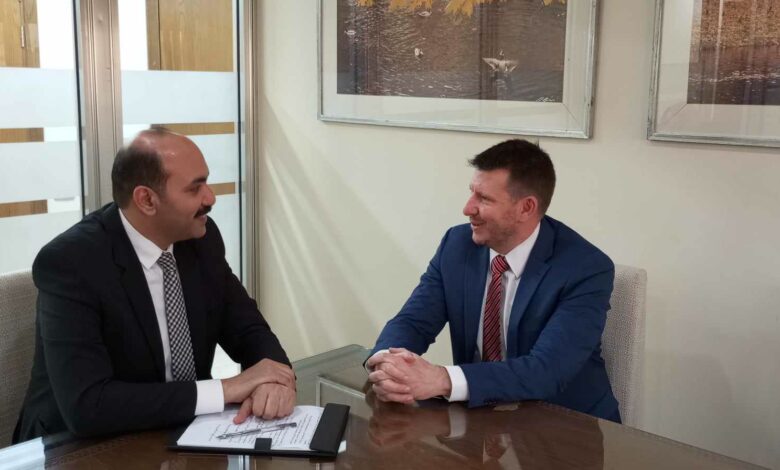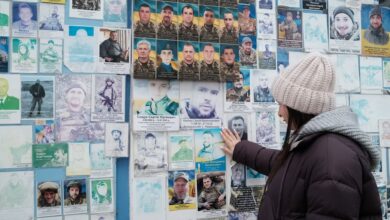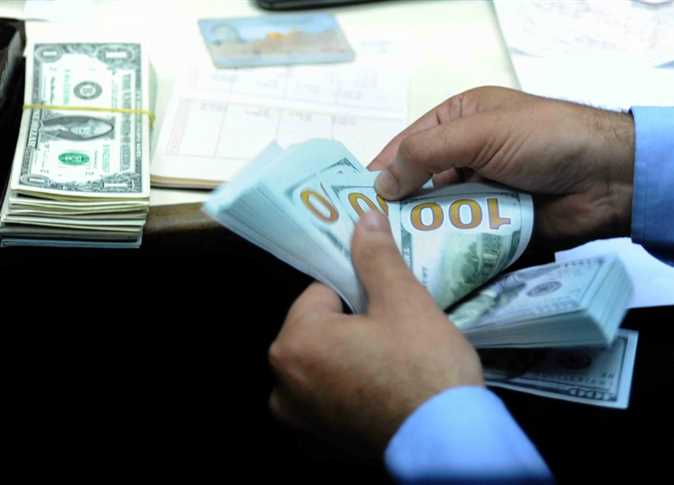
Sitting down for an exclusive interview with Al-Masry Al-Youm, Estonia’s Deputy Foreign Minister Yonatan Sivov discussed his country’s appreciation for Egypt’s efforts towards reaching a ceasefire in Gaza and the importance of a a two-state solution to the Palestinian issue.
He also confirmed his recognition of Palestine as an occupied state, that his country holds no double standards and that the Russian-Ukrainian war must also come to an end.
How do you see the bilateral relationship with Egypt? What are the most prominent areas of cooperation between Cairo and Tallinn?
Our relationship with Egypt is excellent in all fields, and is one of the top three countries seen as a “mecca” for my countrymen for tourism, especially in the Red Sea region.
I am confident that Egypt has wonderful capabilities, as it is suitable for us in the winter while Estonia is also suitable for Egyptian tourists in the summer.
Just like our country, it is also distinguished in the digital technology field with international technology companies, an area Egypt is permanently working on, thus there is cooperation between us here.
This was one of the reasons for my visit, as we share with Cairo aspects such as regional and international security, and agreement in many international issues and positions – especially the one most occupying international public opinion which is Gaza, a topic I discussed with the Egyptian Ministry of Foreign Affairs.
I also discussed ending the Russian-Ukrainian war, and both Cairo and Tallinn seek to respect international laws and conventions.
We share consensus in international positions and the importance of establishing lasting peace in the world.
So, how do you see the war on the Gaza Strip, and Egypt’s role in reaching a truce and a permanent ceasefire?
We condemned the war on the Gaza Strip, and at the same time we criticized the “Al-Aqsa Flood” operation carried out by Hamas on October 7.
However, we have also criticized Israel for the size of the reaction, which led to the killing of more than 34,000 Palestinians. So we have no double standards.
Estonia agrees with Egypt on the necessity of a two-state solution, as it is the ideal solution for establishing peace in the Middle East region.
We have sent humanitarian aid to Gaza via Egypt which plays a major role in working towards a ceasefire, handling negotiations and providing aid.
The whole world appreciates Egypt and is concerned about this humanitarian issue.
It is also important for the world to listen to Egypt’s calls to promote peace and adhere to international law.
But how does your country describe the war on Gaza? Is it genocide, given there are fears of an invasion in Rafah?
We do not use this term, but have made a strong criticism against Israel and are focusing on the necessity of a solution as this entire situation is unacceptable and enraging.
As for Rafah, we have hope that the war will stop and prevent more bloodshed.
What is happening in Gaza is seen by the whole world.
In Europe, there are those who say that they support Israel in defending itself. How do you support Tel Aviv and criticize Russia for its right to defend its national security? Isn’t that a double standard?
What happened in Europe with Russia’s war on Ukraine is different from what is happening in Gaza.
We do not have double standards – Moscow launched a “hostile” war on Kiev. Ukraine is a sovereign state that was attacked, while Palestine is a state occupied by Israel, therefore there is no gray zone.
It is natural that we both defend Ukraine and also support stopping the war on Gaza.
How do you see the Russian-Ukrainian war 700 days after it began? Did the war impact your country?
The Russian war has impacted all countries of the world, and we are all suffering from its repercussions – but the Ukrainian people are suffering the most.
We support Ukraine in joining NATO in order to support the stability of global security.
So what is the solution?
I believe that there is a necessity for Russia to return to how it was before the war and this is our goal, nothing more and nothing less.
We are not against opposing Russia in defending its national security, or being a powerful nuclear state, but what we object to is its launching a war against a sovereign state.
Russia has expressed its desire to continue negotiations, but Ukraine refused, and at the same time your country has supplied howitzers. Isn’t this a declaration of war from Tallinn against Moscow?
Russian President Vladimir Putin insists on annexing the areas controlled by Moscow, and Ukraine refuses to surrender. Just as we know the solution in Palestine, we also know it for Ukraine – that the sovereignty of states must be preserved.
Ukraine joining NATO is its right.
Another country would attack its neighbor under the pretext of defending itself. I believe that all wars end in peace, and if we fail to achieve that, it will have a major negative impact.
We have provided Ukraine with weapons and military and financial aid.
Aren’t you afraid of Russia’s power if there is a war with NATO?
If Russia enters into a war with NATO countries, the alliance will not fear that.
During the 75 years since the founding of the alliance, no country has occupied a NATO member state, and Estonia has been a member for 20 years and feels safe, so we saw the desire of Sweden and Finland as new members alongside Ukraine.
It will join the European Union and NATO, but this takes time such as with Estonia, which took seven years to gain membership.
Do you think the world is living in chaos, or through a cold war?
I can say that the 21st century began catastrophically, but we are capable of change and we have fears and anxiety in most regions of the world.
The world is experiencing rising tensions, and in other regions it is going through chaos, but there is no cold war.
Do you have soldiers in Ukraine?
There are no soldiers, only volunteers, and no mercenaries.
At the same time, if it is proven that there is an Estonian citizen fighting with Russia, he will be tried.
The Kremlin included Estonian Prime Minister Kaya Kallas on the wanted list, accusing her of carrying out “hostile actions” against Moscow. What is your comment? At a time when the Prime Minister of your country is attacking Russia, we see that her husband has major business relations with Moscow. Isn’t that deceptive?
For us, this measure is of no importance.
Regarding the Prime Minister’s husband’s commercial relationship with Russia, yes, this matter is something like a “scandal.”
And since our country is characterized by democracy and transparency, the Prime Minister informed her people that she was not aware of this, and her husband has cut off commercial relations with Moscow.
Isn’t the US Department of Justice’s announcement that the United States handed over to Estonia about $500,000 in “frozen Russian assets,” with the aim of reforming the electricity system in Ukraine, a “theft” of Moscow’s money?
The confiscation of Russian funds has nothing to do with the escalation of the war or tension with Russia.
The aggressor must compensate for the losses, and so far Russia has not done anything, so we are exploiting the benefits of the funds for the construction sector, and in the future we will use the assets of the funds.
The European decision was to use the benefits to repair the infrastructure.
The European Union countries have $200 billion from Russia, while the reconstruction of Ukraine costs about $700 billion.




